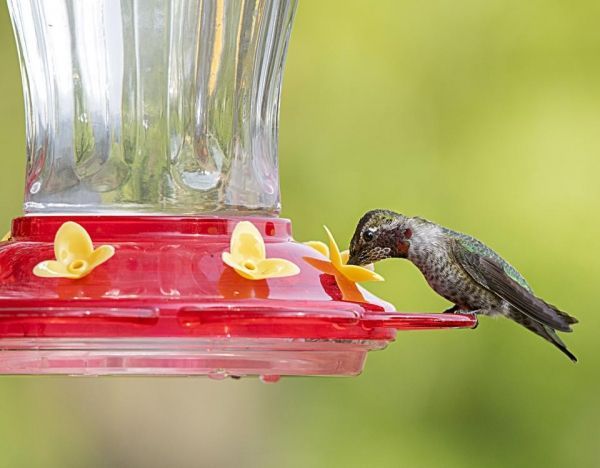Many people set up hummingbird feeders in their yards to nurture and watch these high-energy pollinators. But could the sugar water they provide be impacting these tiny feathered friends?
A study led by the University of California, Davis, is one of the first to address the potential for sugar water from hummingbird feeders to act as a vector for avian — or even zoonotic — pathogens. It found that the majority of microbes growing in feeders do not likely pose a significant health hazard to birds or humans.
The research, published March 6 in the Proceedings of the Royal Society B, explored the microbial communities that dwell in sugar water from feeders and compared them to those found in flower nectar and samples from live hummingbirds.
“Although we found high densities of both bacteria and fungi in sugar water samples from feeders, very few of the species found have been reported to cause disease in hummingbirds,” said community ecologist and co-author Rachel Vannette, an assistant professor in the UC Davis Department of Entomology and Nematology. “However, a tiny fraction of those microbes has been associated with disease, so we encourage everyone who provides feeders for hummingbirds to clean their feeders on a regular basis and to avoid cleaning feeders in areas where human food is prepared.”
Read more at University of California – Davis
Image: An Anna’s hummingbird sips sugar water from a feeder. CREDIT: Scott Logan/Wild Wings Ecology


